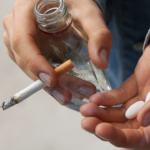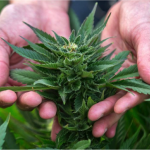A drug is a chemical substance that acts on the brain and nervous system, changing a person’s mood, emotion or state of consciousness. Drugs are often classified by the effect they have.
Stimulants, such as cocaine, make people feel full of energy. Depressants (or sedatives), such as heroin, make people feel relaxed. Hallucinogens, such as LSD, make people see, feel or hear things that are not real. Drug or substance misuse is when a person regularly takes one or more drugs to change their mood, emotion or state of consciousness.
Women, addiction and crime: what works? #WomenAndDrugs

Some of the country’s leading experts on mental health and substance abuse will gather at the University of York tomorrow to “end the silence” surrounding women and addiction. We’ll be taking this #WomenAndDrugs event #BeyondTheRoom and I’m delighted to be publishing two relevant blogs, one today and the other tomorrow.
Here’s the first from regular elf blogger Ian Hamilton, who explores a recent narrative literature review on effective interventions for drug using women offenders.
[read the full story...]










